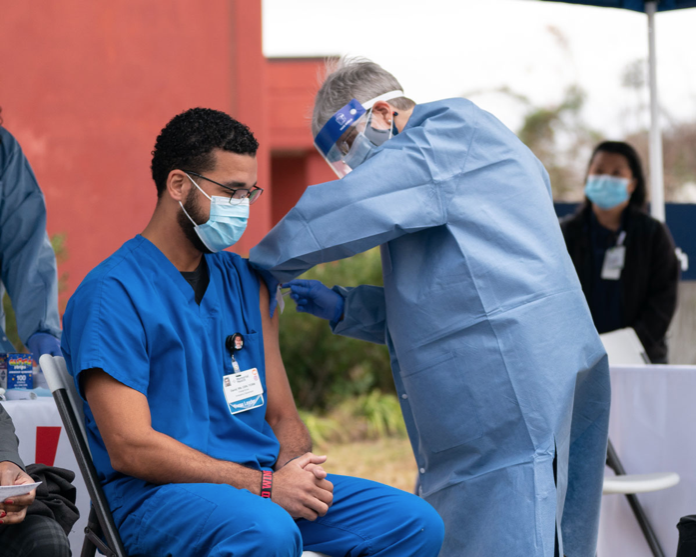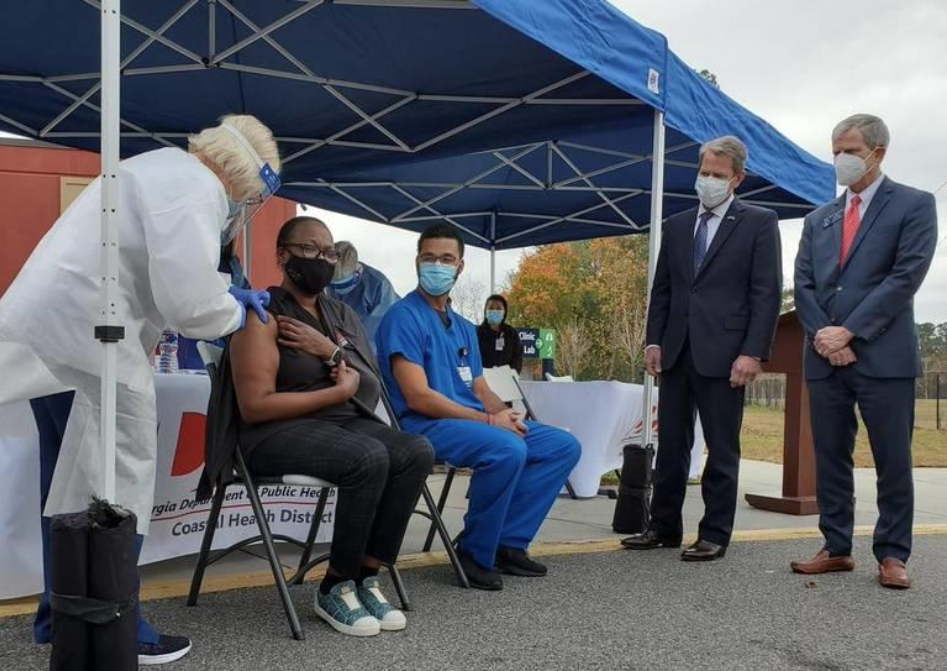How chronic underfunding fueled
Georgia’s Covid-19 vaccine woes
Advocates warn federal support doesn’t offer a permanent solution,
nor will it ease chronic understaffing
 An emergency room nurse in Savannah receives a dose of the Pfizer-BioNTech COVID-19 vaccine in December 2020. PHOTOGRAPH BY SEAN RAYFORD/GETTY IMAGES
An emergency room nurse in Savannah receives a dose of the Pfizer-BioNTech COVID-19 vaccine in December 2020. PHOTOGRAPH BY SEAN RAYFORD/GETTY IMAGES
When Amber Schmidtke was a medical school professor in Macon, she started a research project to better understand why so many of the state’s kids were behind on their childhood immunizations. In 2017, Georgia was the slowest state in the nation to get three-year-olds fully vaccinated against infections like measles and whooping cough. Schmidtke found that a major reason for the state’s poor performance was the Georgia Registry of Immunization Transactions and Services—abbreviated, obviously, as GRITS.
Created in 1996, GRITS was initially designed to ensure children statewide were benefiting from federal vaccination programs by tracking immunizations given mostly in pediatricians’ offices and by county health departments. It was built for “more of a trickle than a flood,” says Schmitdke, and was so infrequently used to track adult vaccinations that most internists had no clue how to use it.
Schmidtke wasn’t particularly surprised, then, to hear that during the state’s massive Covid-19 vaccination rollout effort, GRITS had become a particularly gluey cog in the public health machine, its crashes and delays leading to dramatically underreported levels of vaccine administration statewide. But she was stunned when, during a January 19 hearing before the Georgia legislature, health department director Kathleen Toomey requested only minimal additional funding for public health in the 2022 budget.






